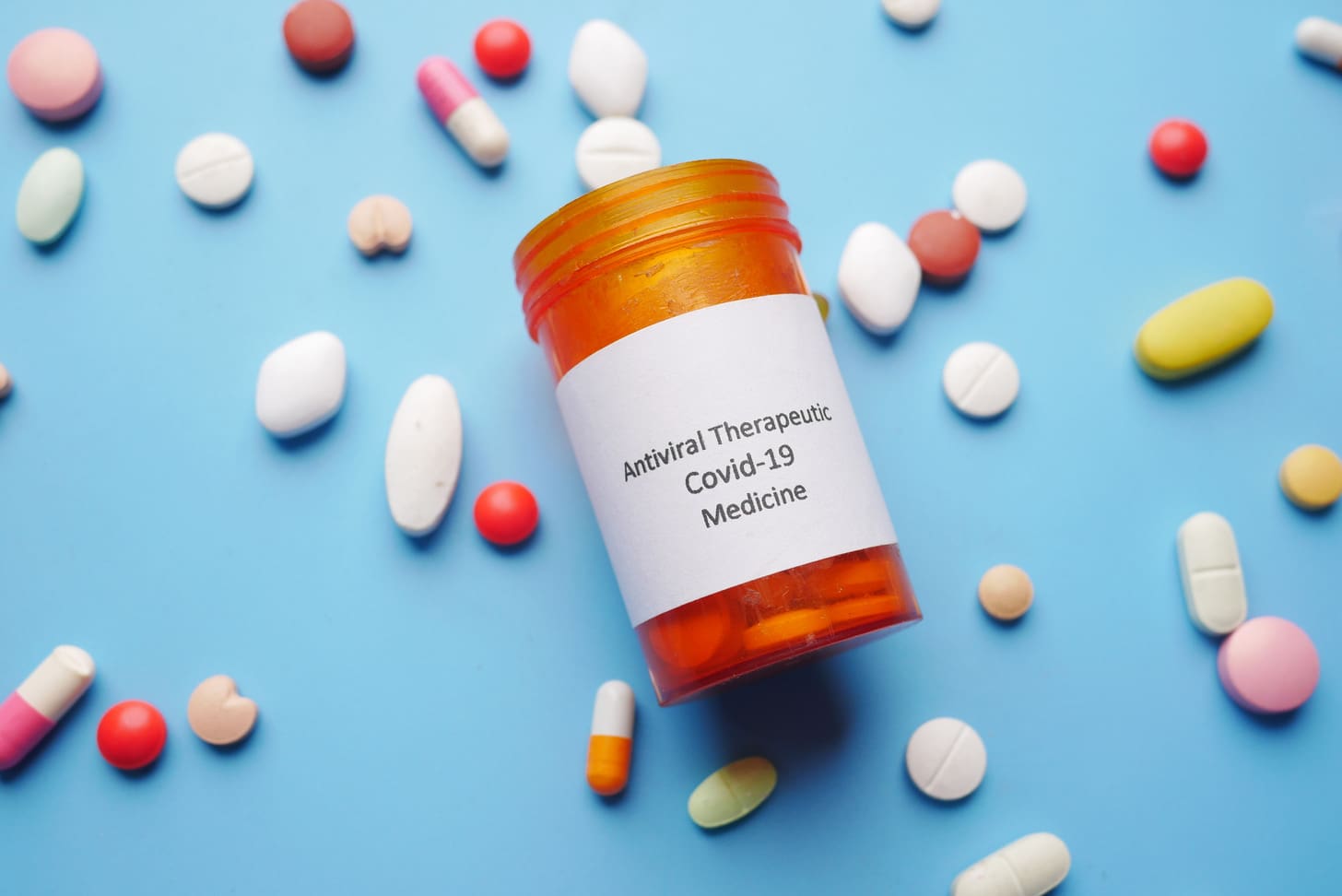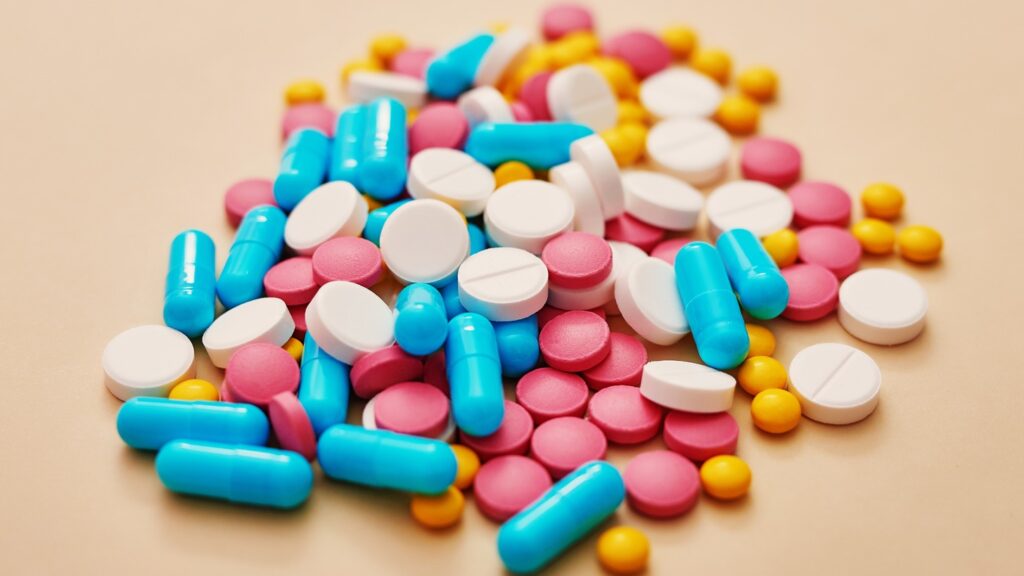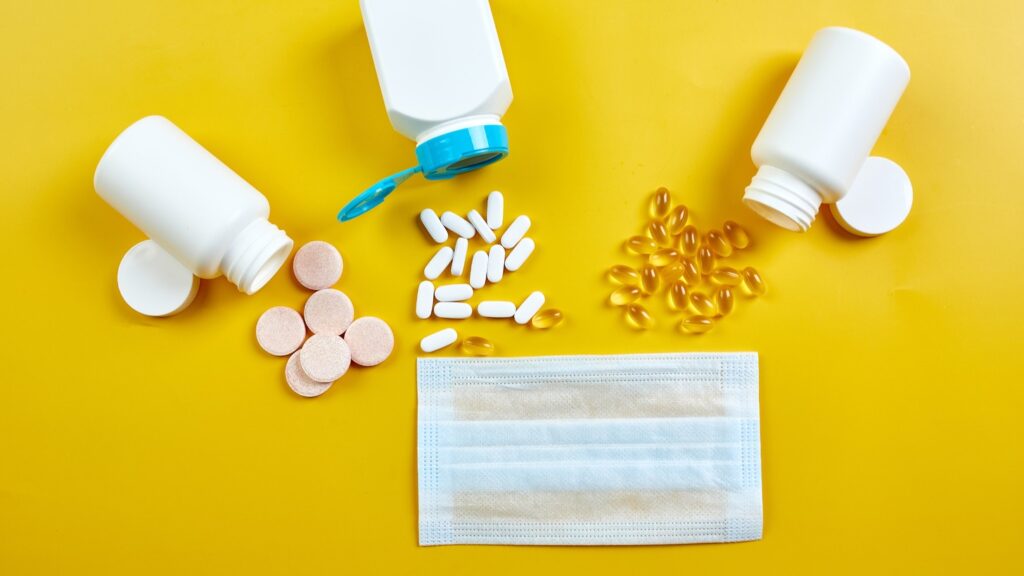Last Updated on November 3, 2025 by mcelik

Getting antiviral medications for COVID-19 is key to avoiding serious illness. At Liv Hospital, we focus on our patients, using the newest treatments and therapies. This ensures we give the best care possible.
Seeing a healthcare provider is the first step to get these treatments. They check if you’re eligible based on your symptoms, risk factors, and recent contact with others. Studies show that covid antiviral medicines like Paxlovid, Lagevrio, and Remdesivir can lower the chance of severe illness and hospital stays.
We know how vital it is to get covid 19 treatments quickly. Our aim is to offer a detailed guide. This will help people understand how to get antiviral medication for COVID-19.

Understanding antiviral treatments for COVID-19 is key to managing the disease. These treatments have changed how we fight the virus. They offer targeted therapies that can greatly improve outcomes for those infected.
Antiviral medications stop the SARS-CoV-2 virus from copying itself. This reduces the virus in the body. Paxlovid (Nirmatrelvir/Ritonavir), Lagevrio (Molnupiravir), and Remdesivir are approved to treat COVID-19. They help lessen symptoms and shorten the illness, best when started early.
“Early treatment is vital for the best results,” says experts. It’s important to see a doctor quickly when symptoms start.
Starting treatment early is key to controlling the disease. Starting within 5 days of symptoms is best. This early start can lower the risk of serious illness, hospitalization, and death, mainly for those at high risk.
The treatments for COVID-19 have changed fast, thanks to research and new evidence. From vaccines to antiviral drugs, our options keep growing. As the pandemic goes on, we learn more about the virus and how to fight it.
“The rapid evolution of COVID-19 treatments shows how important it is to stay updated and work with healthcare providers for the best care.”
Research has led to many COVID-19 treatments, including drugs and vaccines. As the virus changes and we learn more, treatment guidelines get better. This ensures patients get the best care possible.

To see if you qualify for COVID-19 antiviral treatment, your health is checked. Doctors look at your symptoms, risk factors, and if you’ve been exposed to the virus.
Some people are at higher risk for COVID-19 and need antiviral treatment. Being older or having health issues are big risk factors.
| Risk Factor | Description |
|---|---|
| Age | Being 65 years or older |
| Underlying Conditions | Having conditions like diabetes or heart disease |
| Immunocompromised | Having a weakened immune system |
To get COVID-19 antivirals, you need a confirmed diagnosis from a test. The test used can affect when and how well treatment works.
Testing Methods:
Starting antiviral treatment within 5 days of symptoms is key. Early treatment can greatly improve your chances of recovery.
Knowing these details helps patients understand how to get COVID-19 antiviral treatments. It’s all about timing and health checks.
Getting antiviral medication for COVID-19 has several steps. We will explain each one. From testing to starting your treatment, we’ve got you covered.
The first step is to test for COVID-19. Use authorized tests found at pharmacies or healthcare facilities. You can also get at-home testing kits.
After testing positive, tell your healthcare provider. They need to know to decide if you can get antiviral treatments.
Next, talk to a healthcare provider after confirming your COVID-19 status. They will check your health and decide if you need antiviral medication.
Tell them about your symptoms, health conditions, and any medicines you’re taking. This helps them make the best choice for you.
If you need antiviral medication, your healthcare provider will write a prescription. Then, fill it at a pharmacy that has the medicine.
Fill your prescription quickly and follow the instructions. Some medicines need special care, so ask about storage.
Once you have your prescription, start your treatment. Take the medicine exactly as told.
Watch how your body reacts and tell your healthcare provider about any side effects. They can help with any problems and adjust your treatment if needed.
| Step | Description | Key Considerations |
|---|---|---|
| 1. Testing | Confirm COVID-19 status through authorized tests. | Report results to healthcare provider. |
| 2. Consultation | Discuss condition, medical history, and risk factors with healthcare provider. | Provide detailed information about symptoms and medications. |
| 3. Prescription | Receive and fill prescription for antiviral medication. | Follow storage and handling instructions. |
| 4. Treatment | Begin treatment regimen as prescribed. | Monitor response and report side effects. |
Understanding the COVID-19 antiviral medicines is key. These drugs aim to fight the virus and lessen symptoms.
Several antiviral drugs have been approved or authorized for emergency use. We will look at their usage, how well they work, and their limits.
Paxlovid is a combination drug that has shown great success. It helps reduce hospitalizations and deaths in high-risk patients. It stops the virus from making more copies.
Key Benefits of Paxlovid:
Lagevrio is authorized for treating mild to moderate COVID-19 in certain patients. It has shown some success, but its use is limited.
Considerations for Lagevrio:
Remdesivir is an intravenous drug for treating COVID-19 in hospitalized patients or those at high risk. It needs healthcare facility resources.
Remdesivir Treatment Overview:
| Treatment Aspect | Description |
|---|---|
| Administration | Intravenous infusion |
| Primary Use | Hospitalized patients or high-risk individuals |
| Efficacy | Shown to reduce recovery time |
These antiviral medicines are big steps forward in treating COVID-19. Knowing how they work helps healthcare providers make better choices for their patients.
Getting COVID-19 treatments is now easier, with many ways to get antiviral meds. We know finding your way through the healthcare system can be tough. So, we’re here to help you find the best places for COVID-19 treatments.
Many pharmacies now carry antiviral meds for COVID-19. It’s easy to get your prescription there. Just check with your local pharmacies to see if they have it. You can also look online to find pharmacies that offer these treatments.
If you need serious care or are in the hospital for COVID-19, hospitals and clinics are ready. They have the tools and treatments for severe cases, including antiviral meds.
Telehealth is a great way to get COVID-19 treatments. You can talk to a doctor online and get a prescription for antiviral meds. This is good for those at high risk or who have trouble moving.
We suggest looking into these options and talking to your doctor. Knowing where to go for COVID-19 treatments helps you recover faster.
COVID-19 antiviral medications can be expensive. But, many insurance plans and financial aid programs can help. It’s important to understand how to get these treatments without breaking the bank.
If you have Medicare, Medicaid, or other government programs, you need to know the rules. These programs usually cover FDA-approved COVID-19 treatments like Paxlovid and Lagevrio.
Coverage Details:
| Program | Coverage for Paxlovid | Coverage for Lagevrio |
|---|---|---|
| Medicare | Covered | Covered |
| Medicaid | Covered* | Covered* |
| Veterans Administration | Covered | Covered |
*Coverage may vary by state.
Private insurance often covers COVID-19 treatments, but coverage can differ. Many insurers have fast approval for urgent cases. This ensures you get the meds you need quickly.
To make things easier, do the following:
If you don’t have insurance, there are programs to help with COVID-19 meds. Companies and non-profits offer aid.
Some key programs include:
By looking into these options, uninsured people can lower the cost of COVID-19 treatment.
Managing COVID-19 well needs a detailed treatment plan. It’s key to know the important parts of antiviral meds for them to work right.
To make the most of your COVID-19 treatment, follow the right steps. This means:
Following these steps is key to getting the most from treatments like Paxlovid and Lagevrio.
It’s important to watch how you’re doing with your COVID-19 treatment. Here’s what we suggest:
Keeping an eye on things helps spot problems early, so you can get help fast.
It’s important to know when to call your doctor during treatment. You should reach out if you notice:
By following these tips and keeping in touch with your doctor, you can manage your COVID-19 treatment well. This helps you get better faster.
When dealing with COVID-19 treatments, knowing about side effects and drug interactions is key. Antiviral meds can help make COVID-19 less severe and shorter. But, like all meds, they can have side effects and interact with other drugs.
COVID-19 antivirals can cause side effects, from mild to severe. Some common ones include:
These side effects are usually mild and short-lived. But, sometimes they can be serious. Always talk to your doctor about any side effects you have.
COVID-19 antivirals can also interact with other drugs. This includes prescription and over-the-counter meds, as well as supplements. Some important interactions to know about include:
| Medication | Potential Interaction |
|---|---|
| Paxlovid (Nirmatrelvir/Ritonavir) | May interact with certain statins, increasing the risk of muscle damage |
| Lagevrio (Molnupiravir) | May interact with certain medications that affect kidney function |
Tell your doctor about all the meds you’re taking to avoid bad interactions.
Side effects can be tough, but there are ways to make them better. Here are some tips:
By knowing about side effects and drug interactions, you can help manage your treatment. This way, you can get the best results from your COVID-19 treatment.
As we deal with COVID-19, knowing about new treatments is key. New medicines and therapies are being found all the time. We’ve shown how to get antiviral meds, like checking if you qualify and talking to doctors.
It’s important to know how to get antiviral meds for COVID. There are medicines like Paxlovid and Lagevrio that help. These treatments aim to make COVID-19 less severe and shorter.
We suggest keeping up with the latest on COVID-19 treatments. Talk to your doctor to find the best treatment for you. This way, we can fight the pandemic better and help patients more.
COVID-19 antiviral treatments are medicines to fight the COVID-19 virus. They stop the virus from making more copies. This makes the illness less severe and shorter.
COVID-19 antiviral treatments are medicines to fight the COVID-19 virus. They stop the virus from making more copies. This makes the illness less severe and shorter.
COVID-19 antiviral treatments are medicines to fight the COVID-19 virus. They stop the virus from making more copies. This makes the illness less severe and shorter.
COVID-19 antiviral treatments are medicines to fight the COVID-19 virus. They stop the virus from making more copies. This makes the illness less severe and shorter.
COVID-19 antiviral treatments are medicines to fight the COVID-19 virus. They stop the virus from making more copies. This makes the illness less severe and shorter.
COVID-19 antiviral treatments are medicines to fight the COVID-19 virus. They stop the virus from making more copies. This makes the illness less severe and shorter.
COVID-19 antiviral treatments are medicines to fight the COVID-19 virus. They stop the virus from making more copies. This makes the illness less severe and shorter.
COVID-19 antiviral treatments are medicines to fight the COVID-19 virus. They stop the virus from making more copies. This makes the illness less severe and shorter.
COVID-19 antiviral treatments are medicines to fight the COVID-19 virus. They stop the virus from making more copies. This makes the illness less severe and shorter.
COVID-19 antiviral treatments are medicines to fight the COVID-19 virus. They stop the virus from making more copies. This makes the illness less severe and shorter.
COVID-19 antiviral treatments are medicines to fight the COVID-19 virus. They stop the virus from making more copies. This makes the illness less severe and shorter.
COVID-19 antiviral treatments are medicines to fight the COVID-19 virus. They stop the virus from making more copies. This makes the illness less severe and shorter.
COVID-19 antiviral treatments are medicines to fight the COVID-19 virus. They stop the virus from making more copies. This makes the illness less severe and shorter.
COVID-19 antiviral treatments are medicines to fight the COVID-19 virus. They stop the virus from making more copies. This makes the illness less severe and shorter.
COVID-19 antiviral treatments are medicines to fight the COVID-19 virus. They stop the virus from making more copies. This makes the illness less severe and shorter.
COVID-19 antiviral treatments are medicines to fight the COVID-19 virus. They stop the virus from making more copies. This makes the illness less severe and shorter.
COVID-19 antiviral treatments are medicines to fight the COVID-19 virus. They stop the virus from making more copies. This makes the illness less severe and shorter.
COVID-19 antiviral treatments are medicines to fight the COVID-19 virus. They stop the virus from making more copies. This makes the illness less severe and shorter.
COVID-19 antiviral treatments are medicines to fight the COVID-19 virus. They stop the virus from making more copies. This makes the illness less severe and shorter.
COVID-19 antiviral treatments are medicines to fight the COVID-19 virus. They stop the virus from making more copies. This makes the illness less severe and shorter.
COVID-19 antiviral treatments are medicines to fight the COVID-19 virus. They stop the virus from making more copies. This makes the illness less severe and shorter.
COVID-19 antiviral treatments are medicines to fight the COVID-19 virus. They stop the virus from making more copies. This makes the illness less severe and shorter.
COVID-19 antiviral treatments are medicines to fight the COVID-19 virus. They stop the virus from making more copies. This makes the illness less severe and shorter.
COVID-19 antiviral treatments are medicines to fight the COVID-19 virus. They stop the virus from making more copies. This makes the illness less severe and shorter.
COVID-19 antiviral treatments are medicines to fight the COVID-19 virus. They stop the virus from making more copies. This makes the illness less severe and shorter.
COVID-19 antiviral treatments are medicines to fight the COVID-19 virus. They stop the virus from making more copies. This makes the illness less severe and shorter.
COVID-19 antiviral treatments are medicines to fight the COVID-19 virus. They stop the virus from making more copies. This makes the illness less severe and shorter.
COVID-19 antiviral treatments are medicines to fight the COVID-19 virus. They stop the virus from making more copies. This makes the illness less severe and shorter.
COVID-19 antiviral treatments are medicines to fight the COVID-19 virus. They stop the virus from making more copies. This makes the illness less severe and shorter.
COVID-19 antiviral treatments are medicines to fight the COVID-19 virus. They stop the virus from making more copies. This makes the illness less severe and shorter.
COVID-19 antiviral treatments are medicines to fight the COVID-19 virus. They stop the virus from making more copies. This makes the illness less severe and shorter.
Ada Health. COVID‑19 Treatment Guide. https://ada.com/covid/treatment-guide/
California Department of Public Health (CDPH). COVID‑19 Questions and Answers — Treatment Information for Providers and Facilities. https://www.cdph.ca.gov/Programs/CID/DCDC/Pages/COVID-19/Questions-and-Answers-Treatment-Information-for-Providers-and-Facilities.aspx
American Medical Association (AMA). What Doctors Wish Patients Knew about COVID‑19 Oral Antivirals. https://www.ama-assn.org/public-health/infectious-diseases/what-doctors-wish-patients-knew-about-covid-19-oral-antivirals
University of Virginia News. New Drug Could Block COVID‑19 Before It Starts, Study Finds. https://news.virginia.edu/content/new-drug-could-block-covid-19-it-starts-study-finds
Subscribe to our e-newsletter to stay informed about the latest innovations in the world of health and exclusive offers!
WhatsApp us